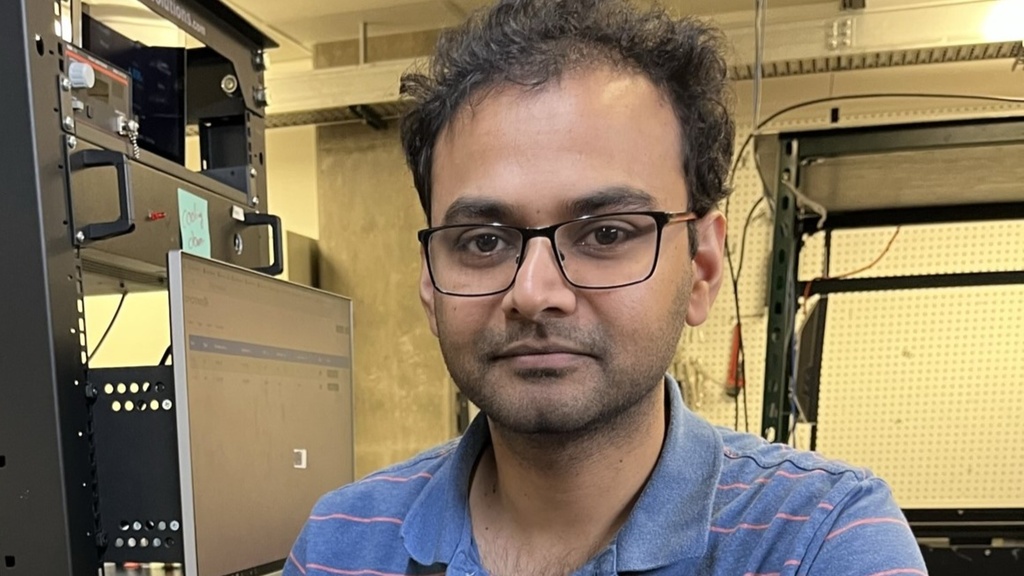Strengthening the University as a Destination for Research and Scholarship
Project Lead: Aaron Kline
Funding Approved: Fiscal Year 22
Project Status: Completed
Funded amount: $4.0M over two years
The Seeding Excellence initiative provided pilot funding to faculty across the University of Iowa to advance institutional priorities, facilitate faculty collaboration, and support the recruitment and retention of faculty in areas of distinction.
Activities from the project included:
- Provided competitive pilot funding for research projects
- Provided 26 awards in year one with faculty involvement from nine UI colleges
- Provided 30 awards in year two
- Funded six interdisciplinary research projects that integrate radiochemistry with other disciplines to advance health
- Hosted seminars and workshops to help applicants workshop ideas and receive feedback on proposals
- As of spring 2025, Seeding Excellence awardees had
- Submitted 74 grants, with 16 proposals awarded a combined total of more than $25M in external funding.
- Published or completed 53 scholarly articles or creative works.
- Involved 195 undergraduate students and 157 graduate students in Seeding Excellence projects.
Next steps:
While P3 funding for the Seeding Excellence project has been completed, many of the awarded teams are continuing their projects. As the projects are completed, they will submit research publications, develop creative works, present at conferences, and apply for grants which will ensure the sustainability of the projects.
The Seeding Excellence team will continue to evaluate the progress and outcomes for projects for three years after the completion of their projects.
In the News

Uppu Receives Grant for Fiber Optics Communication Study
Ravitej Uppu, assistant professor in the Department of Physics and Astronomy, received a $595,000 grant from the the United States Air Force to advance how information is transmitted securely at the quantum level and investigate improvements in fiber optic communication.
Six interdisciplinary projects secure seed funding
The Office of the Vice President for Research (OVPR) granted six $47,000 awards as a part of the OVPR Interdisciplinary Scholars program, part of the Seeding Excellence Initiative. Over an 18-month period, the funding will support a range of radiochemistry projects that ultimately seek to improve human health, including developing new methods to assess radon exposure, improving radiation therapy, and understanding the mechanisms underlying serious airway disease.

Worthington awarded $1.9 million NIH grant to study eye disease
Kristan Worthington, associate professor of biomedical engineering, received a $1.9 million grant from the National Institutes of Health to study factors that contribute to age-related macular degeneration. Worthington received support from the OVPR Early Career Scholars program, part of the P3 funded Seeding Excellence Initiative, and also participated in grant writing workshops offered by the OVPR.
Adeagbo publishes research on HIV prevention measures
Oluwafemi Adeagbo, assistant professor of community and behavioral health, published a research article identifying key barriers preventing Black/African American men in Iowa who have sex with other men from accessing preventive medications for HIV. The paper stems from Adeagbo's participation in the OVPR Early Career Scholars program, which he was awarded funding through in 2023.
Interdisciplinary team secures $500K to address climate, environment, and health
With $500,000 in funding from the OVPR Interdisciplinary Scholars awards program, an interdisciplinary team is working on a project at the intersection of climate, the environment, and health. The team is investigating the effect of the diverse environmental stressors affected by climate change on the unique health challenges of rural people.
Research Development Office announces Spring 2023 OVPR Interdisciplinary Scholars
Five projects involving two dozen faculty members from 13 academic departments will receive funding through the Spring 2023 award cycle of the OVPR Interdisciplinary Scholars program, which is administered by the Research Development Office. The OVPR Interdisciplinary Scholars program is part of the Seeding Excellence Initiative (SEI), a two-year effort to grow the university’s research enterprise by providing competitive seed awards in strategic focus areas. The SEI was funded in the first year of the Public-Private Partnership (P3).